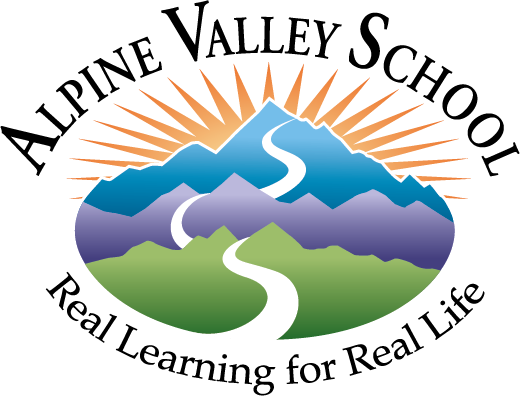A Family of Apprentices
For nearly twenty years I've been striving to articulate why Sudbury schooling appeals so powerfully to me. Why, after all this time, does it remain so difficult to explain? One answer is that Sudbury represents a new paradigm, and communicating across paradigm gaps is elusive and frustrating, when not actually impossible.
But it isn't impossible, and some of the best bridges to understanding are the individual stories of alumni and their families. The more of these you take in, the harder it is to deny the incredible growth and transformation we almost take for granted at Alpine Valley School, so I strongly recommend books and videos like those linked here.
Underlying these personal stories are some common, fundamental dynamics, and it's these I want to explore today. Very recently I made a connection between an attitude of many Alpine Valley School students and a form of learning far older than organized schooling. Briefly, I believe the Sudbury Model draws much of its power from the fact that our schools are families in which young people apprentice to become adults.
I've often described Alpine Valley School as an extended family, comparable to the church community where I grew up, where the adults were like surplus aunts, uncles, and grandparents, the other kids extra siblings and cousins. Indeed, our school is so close-knit we know each other sometimes a little too well, enough to get on each other's nerves—but also enough to support each other, to feel a connection that runs far deeper than likes and dislikes. Here young people learn they're part of something bigger, that they have to (and can) find a way to be who they are in community with others.
This is absolutely crucial, in a Maslow's Hierarchy sort of way. When people feel connected and supported, a valued part of a community, they're far more likely to learn whatever they need, to take responsibility and to grow into mature, confident, and capable adults. I keep coming back to the story of one of our older students who, in telling her peers it was time to return from a trip, said "we have to go home"—not school, home. Think about that for a second: Alpine Valley School students feel so secure that at a subconscious level the school is like a second home to them.
There is so much more to this than creating an environment where kids feel safe. It is vital, yes, that young people have access to family-like peers and adults to broaden their horizons and help them learn, people they can turn to when life becomes unsettling or overwhelming. But what's truly central is the age-mixing and respect that drives this: that's what enables Sudbury schools like Alpine Valley to offer what is, essentially, an apprenticeship for responsible, effective adulthood.
Now, I know the analogy of an apprentice has some holes when it comes to Sudbury schooling. For example, staff members are not "masters" in the sense of having authority and putting their young charges through the paces of menial, repetitive tasks. But staff do serve as models of adulthood, and students do learn from us various ways of being in the world and getting things done. (They learn not only from staff, of course, but the power of the staff-student relationship is considerable, given that these relationships have time and space to grow solid roots.)
So the key difference between Alpine Valley School and a conventional apprenticeship is the power the students hold. For one thing, they hire staff and have the same rights in the daily running of the school. This means students can take on real responsibilities for school management as they are willing and able. And we do rely on them, very much so: students play valuable roles in running things like the chore system and the Judicial Committee. This isn't mere leadership training: a thriving school needs students to grow into responsibilities like these.
And that's why the apprenticeship model works as an analogy for the deep, lasting learning at Alpine Valley School: our young people learn gradually, over a long period, what it takes to build, maintain, and hold their own in a human community. These lessons aren't carefully scheduled and managed simulations, but instead emerge from the fabric of daily life itself. And when they're done being apprentices, many AVS students choose to prepare a sort of masterpiece—which is to say, our thesis or graduation process—by which they demonstrate their readiness for the unique demands of adulthood (though our seal of approval hardly makes a difference, given their deep training and confidence).
That's my current best explanation for the power of Sudbury schooling: we offer young people a second family in which they master, via a long apprenticeship, the skills and traits of highly effective adults. They figure out how to make their own way in the world, how to find happiness and success, by growing up in a close-knit, supportive community; not necessarily in classes, but more so in a thousand small (and not-so-small) lessons. It's a unique blend of freedom and respect, on the one hand, and a vibrant, day-to-day community on the other: that's the power, so hard to explain, of a family of apprentices.
